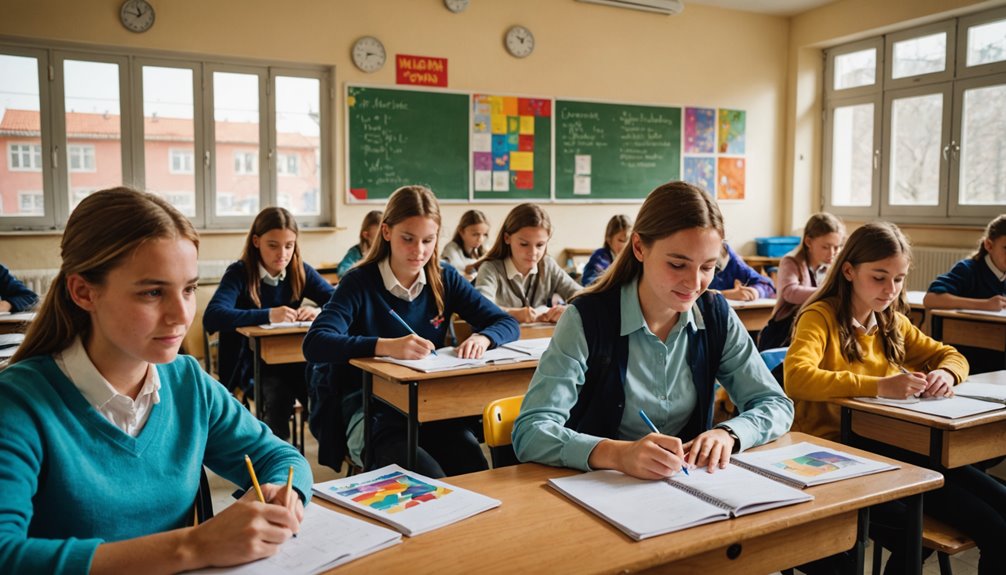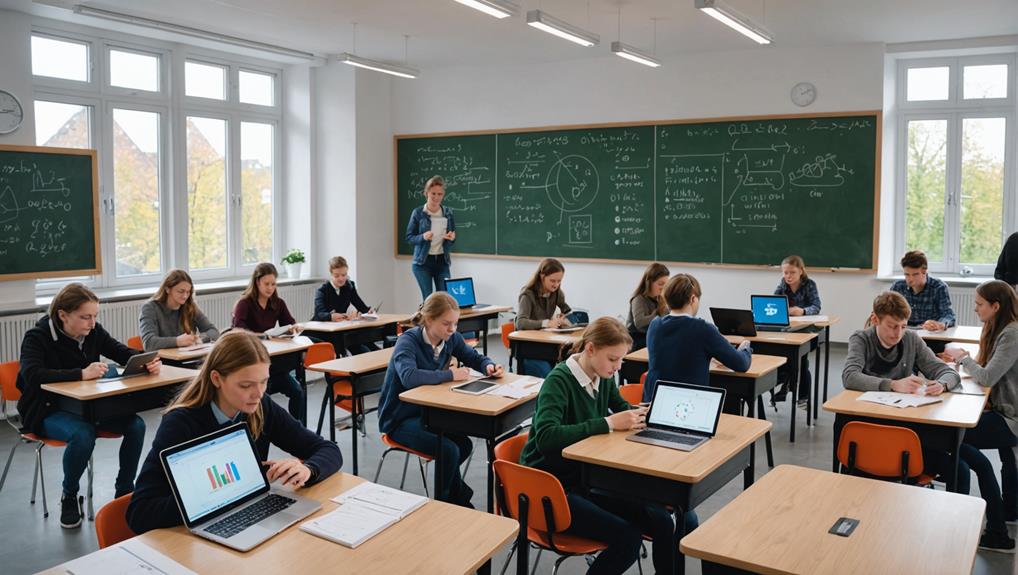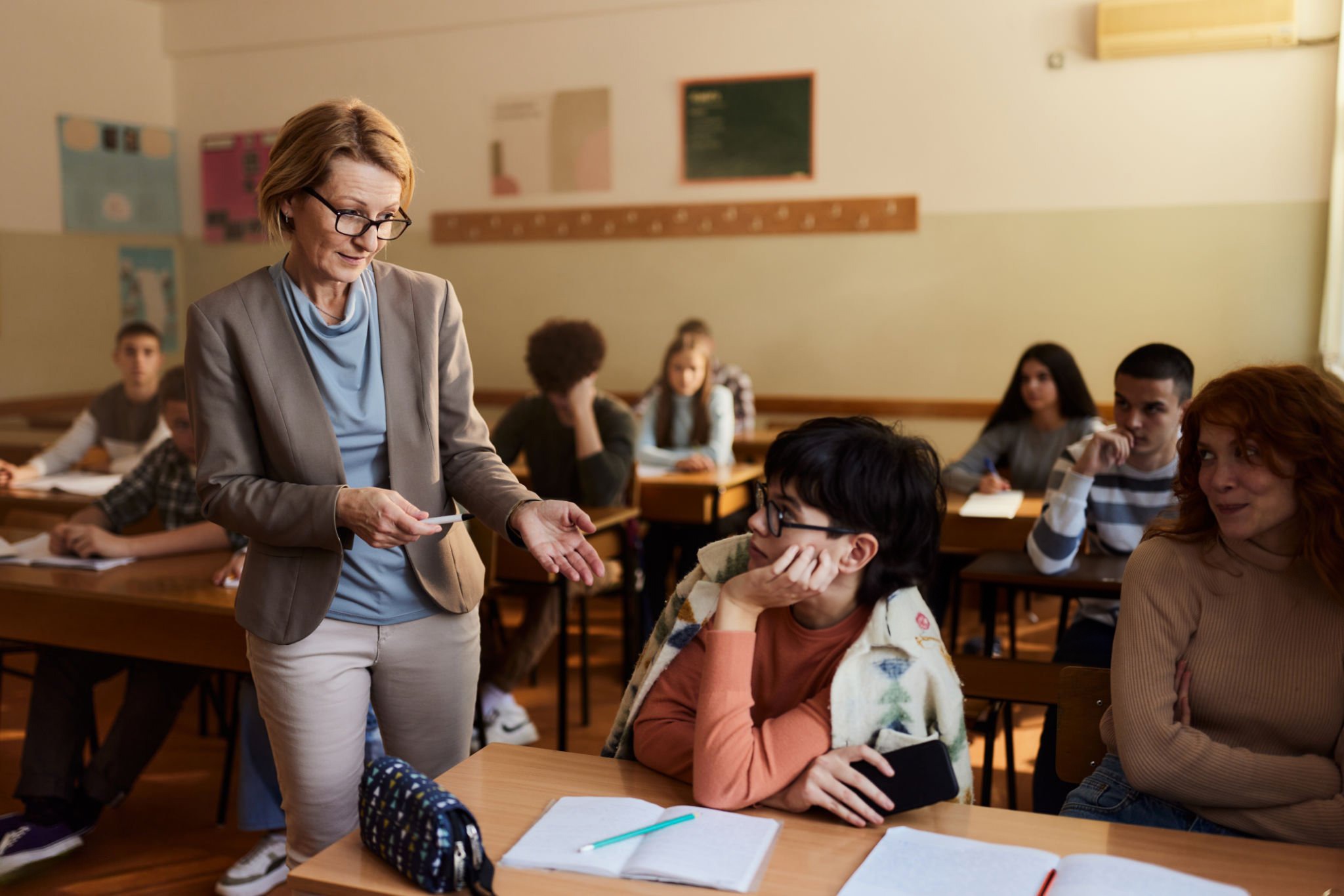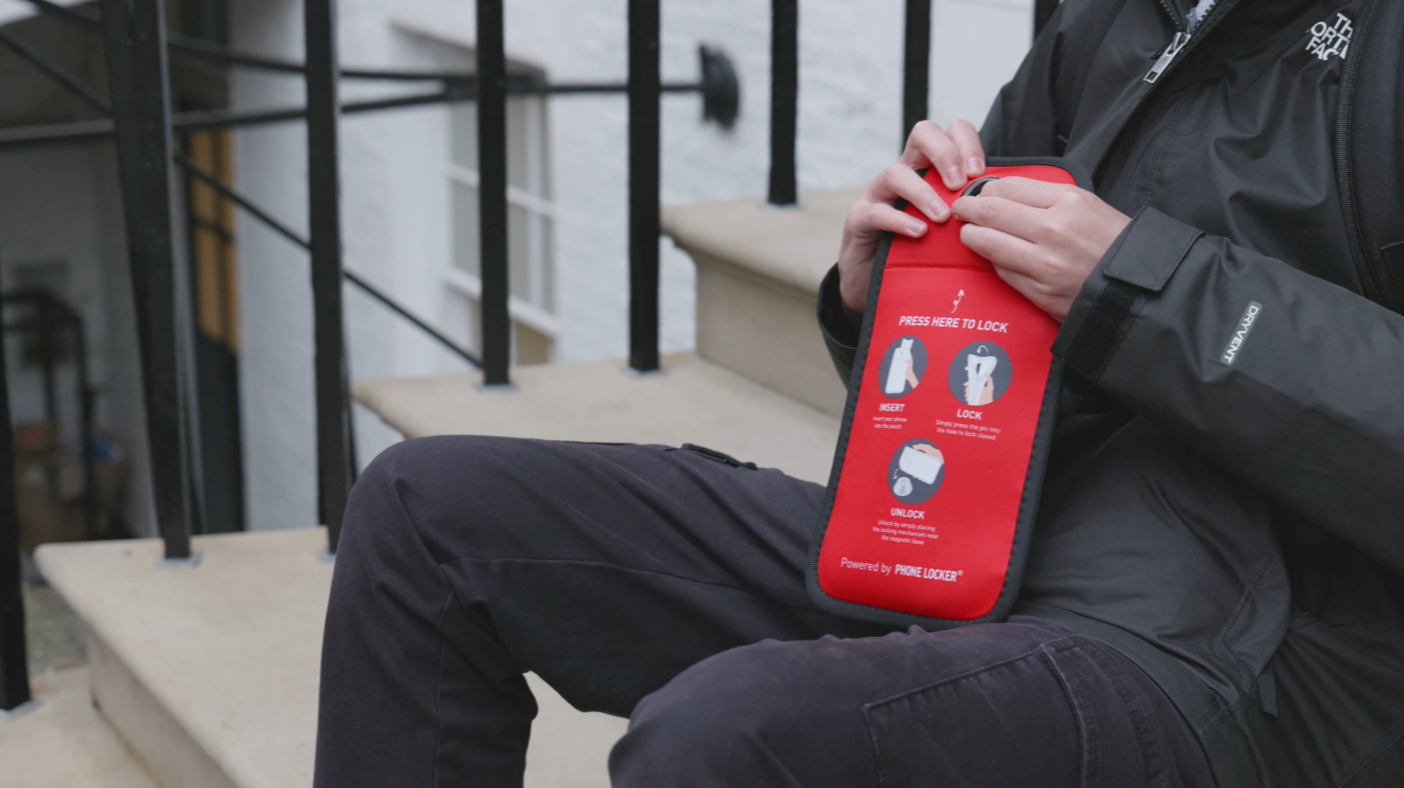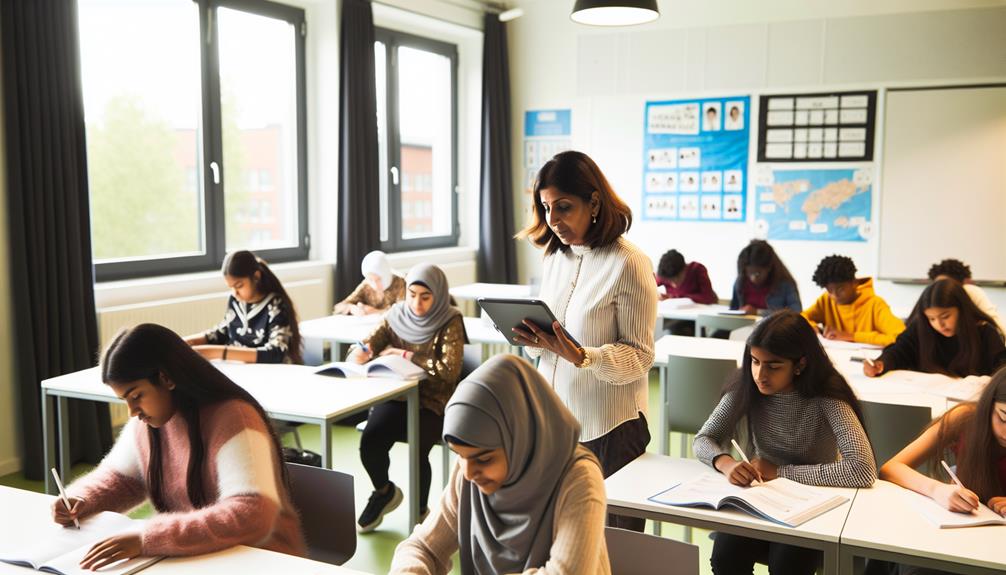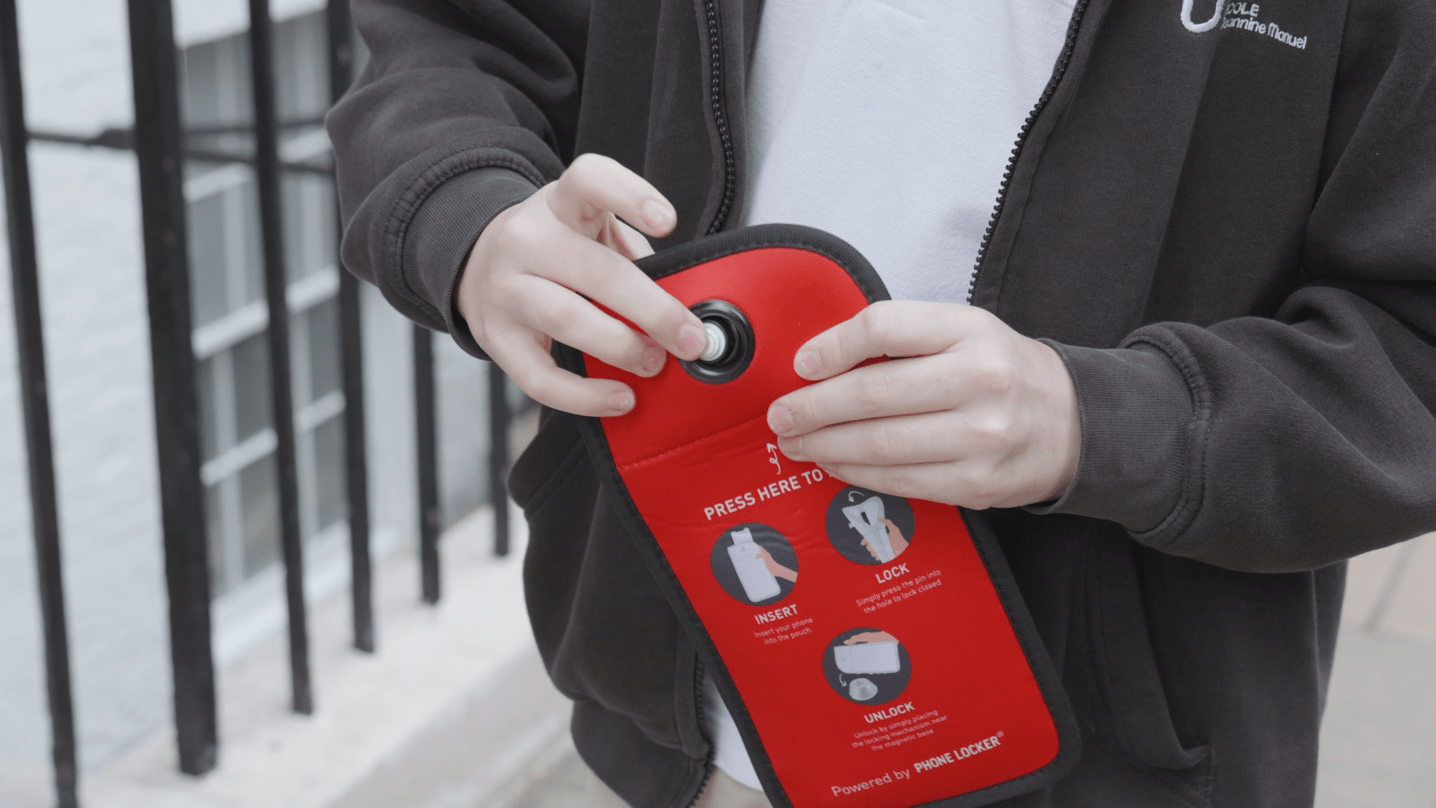Mobile Phones in Croatian Schools: Policies and Opinions
Mobile phone policies in Croatian schools vary greatly, with many institutions opting for complete bans to mitigate distractions. Teachers, especially in specialized subjects, notably support stricter mobile regulations. While mobile phones can enhance digital literacy and student engagement through access to resources, they also pose considerable distractions. Student opinions on bans differ by age, with older students more resistant. Comparative European measures, such as France’s total bans, highlight the ongoing debate on this issue. Innovative solutions like Phonelocker pouches provide a potential balance by securing phones while maintaining engagement, suggesting an intriguing future development in educational strategies.
Key Takeaways
- Croatian schools independently create mobile phone policies, with major cities often opting for complete bans to reduce classroom distractions.
- 85% of Croatian teachers support stricter mobile phone regulations, with support varying by region and subject.
- Student opinions on mobile phone bans vary by age, with younger students supporting them and older students opposing restrictions.
- Phonelocker pouches are used in Croatian schools to enhance student engagement by minimizing distractions and supporting effective classroom management.
- Croatia’s school mobile phone policies reflect a broader European trend of balancing technology use with focused learning.
The Current State of Mobile Phones in Croatian Schools
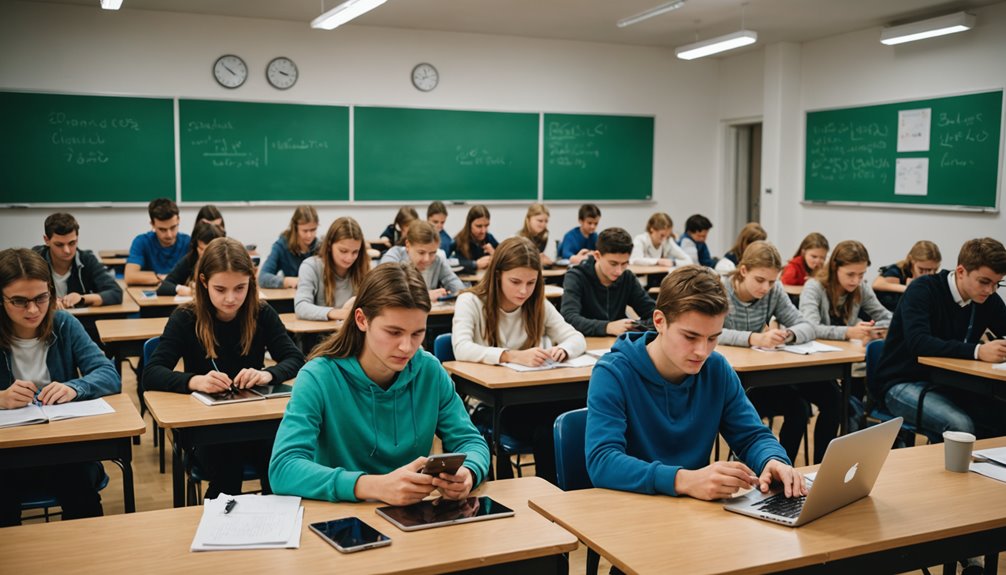
Pros and Cons of Mobile Phone Use in Classrooms
The diverse policies surrounding mobile phone usage in Croatian schools naturally lead to an examination of the benefits and drawbacks of these devices in classroom settings.
On the positive side, the benefits technology brings are significant. Mobile phones can enhance student engagement by enabling access to digital resources and interactive learning platforms. This integration fosters digital literacy, equipping students with essential skills for the modern world. In addition, when used judiciously, mobile phones can support communication skills development through collaborative tools and applications that encourage interaction and teamwork.
Conversely, the presence of mobile phones in classrooms presents notable challenges. Classroom distractions are a primary concern, as notifications and social media can disrupt focus, undermining the learning environment. These distractions can dilute the educational experience, leading to decreased academic performance and a lack of discipline.
Excessive use of mobile devices can hinder the development of essential communication skills, like face-to-face interaction and verbal articulation.
Balancing these pros and cons requires innovative solutions, such as structured guidelines for mobile phone use, ensuring that technology enhances rather than detracts from educational goals.
Ultimately, the key lies in harnessing technology’s potential while mitigating its negative impacts.
Teacher Support for Classroom Cell Phone Ban in Croatia
The majority of teachers in Croatia strongly support stricter regulations on mobile phone usage in schools. According to a survey conducted by the Institute for Social Research, over 85% of Croatian teachers are in favor of implementing a nationwide ban on mobile phones in classrooms. This overwhelming support reflects educators’ concerns about the negative impact of mobile phones on learning environments.
Teachers cite distractions, reduced social interaction, and the potential for misuse, such as cheating and cyberbullying, as key reasons for supporting a ban. The survey also shows regional variations, with teachers in Dalmatia, Istria, and the Zagreb region advocating for stricter policies.
Furthermore, specific disciplines show varying levels of strong support for the ban. Teachers of Physical and Health Education and Computer Science reported the highest levels of endorsement, with 46.6% and 45.4%, respectively, expressing strong agreement. These findings highlight the widespread acknowledgment among educators of the challenges posed by unregulated mobile phone use in schools.
Despite no national mandate, the strong teacher consensus strengthens calls for a unified policy on mobile phone use in Croatian classrooms.
Students Divided on Cell Phone Bans Across Grades
In Croatia, students’ opinions on mobile phone bans in schools are divided across grade levels. While many teachers support restrictions, students in different grades show varying levels of agreement.
Younger students, particularly those in lower grades, tend to be more open to the idea of mobile phone restrictions. They are generally more willing to accept school rules and have less attachment to their phones during school hours. However, as students move into higher grades, their views change. Seventh-grade students, in particular, show a stronger opposition to mobile phone bans. Research indicates that 68.9% of seventh graders oppose or strongly oppose the ban, which reflects a growing sense of autonomy and the increasing role mobile phones play in their lives.
This shift in perspective is not limited to a single age group. Even fifth-grade students, who are younger, show a mixed response to mobile phone restrictions, with no clear consensus emerging. As students mature, they resist restrictions more and view mobile phones as essential tools for communication and information.
Overall, these findings demonstrate a generational divide, with younger students more likely to follow rules and older students more resistant to limitations. The varied opinions across different grade levels emphasize the complexity of implementing a national policy on mobile phone bans in schools, as it must balance the interests of both students and educators.
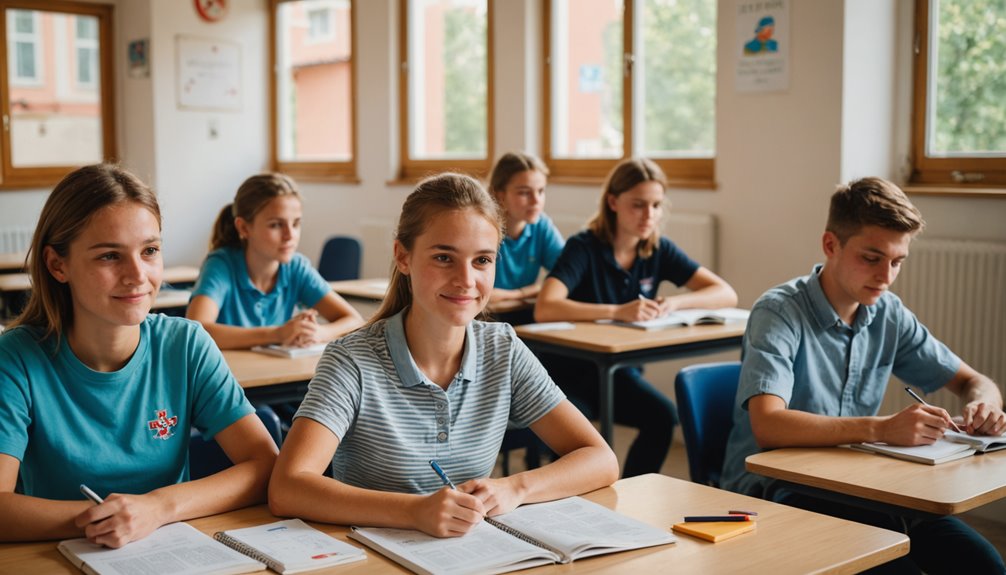
Comparing Croatia with Other Countries
Croatia is not alone in managing mobile phone use in schools. Many countries have adopted different policies for regulating phone use in education.
In France, a national ban on mobile phones in schools was introduced in 2018, prohibiting students up to the age of 15 from bringing phones to school to reduce distractions and improve focus.
In Belgium, the approach is more flexible. Some regions have introduced stricter regulations, with schools allowed to decide on their own policies. In certain areas, schools have banned phone usage during lessons and breaks, while others leave it up to individual schools to regulate usage.
Similarly, in Germany and the United Kingdom, schools have the authority to decide whether to ban or limit mobile phone use. In Germany, many schools restrict phones during lessons but allow them during breaks. The UK leaves the decision to individual schools.
In Australia, some states like Victoria have introduced statewide bans on mobile phones during school hours, while others, like New South Wales and Queensland, have policies that restrict phone use during lessons but allow phones for educational purposes.
Croatia’s decentralized system on mobile phone use is similar to Belgium, Germany, the UK, and Australia. This reflects a global debate on how best to balance the benefits of technology with maintaining focus in educational settings.
Introducing Phonelocker Pouches as the Ideal Solution
As schools around the world, including those in Croatia, explore ways to manage mobile phone use, one innovative solution has emerged: Phonelocker pouches. These pouches securely store students’ phones during school hours, preventing distractions while keeping phones on school premises.
Phonelocker pouches work by locking phones inside a secure, tamper-proof pouch that students cannot open until the end of the school day. This method keeps phones off during lessons, breaks, and activities, while allowing students to keep them for emergencies or after-school use.
The use of Phonelocker pouches offers several benefits:
- Reduced Distractions: By keeping phones out of reach, students are less likely to be distracted by social media, games, or messages during class.
- Increased Focus: With phones securely stored, students can focus better on their studies and engage more fully in classroom activities.
- Enhanced Security: Phonelocker pouches provide a secure solution for schools that want to allow phones on campus but prevent misuse.
Phonelocker pouches offer a balanced solution for schools in Croatia and beyond, addressing the mobile phone debate. They allow phone access while ensuring a focused, distraction-free learning environment.
For more information or inquiries, feel free to contact us and let us help you implement the ideal solution for your school!

Frequently Asked Questions
Mobile phone bans can positively influence academic performance by reducing classroom distractions and enhancing student engagement. Teacher perspectives suggest increased policy effectiveness, promoting a focused learning environment and fostering innovative solutions for educational challenges.
Envision rows of lockers safeguarding digital devices, yet privacy implications loom. Student consent, data security, and locker accessibility raise concerns. Monitoring practices must guarantee robust safeguards, balancing technological convenience with privacy protection through innovative, research-based solutions.
Research indicates diverse parent opinions on mobile phone bans, citing concerns about classroom distractions and digital literacy. While some advocate for restrictions to enhance student engagement, others emphasize the importance of integrating technology into educational environments.
Medical exemptions for phone use in schools may be granted to guarantee health communication and emergency access. Such policies often require parental consent and focus on student support, balancing safety needs with educational environment integrity.
Like pruning a tree for growth, mobile phone bans can enhance student engagement and academic focus while fostering behavioral discipline. However, they may reduce social interactions and inadvertently heighten digital dependency, necessitating innovative monitoring and interventions.
Conclusion
The discussion of mobile phone usage in Croatian schools is ironic; technology promises educational benefits but also acts as a major distraction. Despite the push for bans supported by educators and the contrasting student opinions, the quest for balanced solutions continues. Curiously, some propose Phonelocker pouches as an innovative remedy, reflecting the paradox of using technology to mitigate its own disruptions. Consequently, aligning educational policies with societal expectations remains a complex yet essential endeavor.


